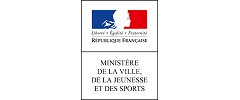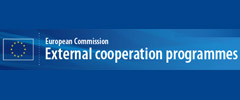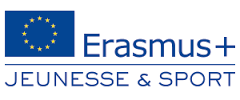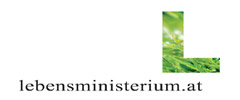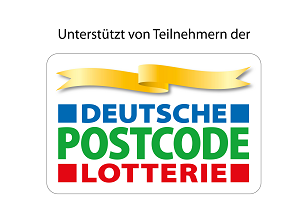Reducing the use of hazardous chemicals in developing countries
potential of implementing safer chemicals including non-chemical alternatives - tools for Georgia and the EECCA region
27.07.2010 | WECF Project
| Countries: | Georgia |
| Donors: | SAICM Quick Start Programme Trust Fund, UNEP |
| Partners: | Greens Movement of Georgia/Friends of the Earth Georgia, Rural Communities Development Agency (RCDA), Georgian Ecological Agricultural Association (SEMA) |
| Issues: | Chemicals |
| Duration: | 07/2010 - 07/2012 |
WECF and its Georgian partners have launched a project aimed at reducing exposure to specific hazardous chemicals (namely asbestos, heavy metals, biocides and pesticides) in Georgia, because they pose an unacceptable risk to human health and the environment. Awareness of stakeholders and the rural population on the dangers of these materials is extremely low.
The specific objective of the project is to create awareness of the sanitary impact of hazardous chemicals used in construction and agriculture and to promote the implementation of safer, preferably non chemical alternatives, especially for the following chemicals/materials:
- Hazardous substances used in insulation, heating, water supply, and housing materials (in particular asbestos, heavy metals in paints, piping)
- Pesticides and biocides in agriculture, home-use and municipalities.
Hazardous construction and maintenance materials
A number of hazardous substances are used in the construction and maintenance of buildings in the EECCA region. WECF partner NGOs have long observed the use of substances which are known to be hazardous immediately to human health, including uranium-mining waste, asbestos and lead-containing paints. Furthermore, other substances are used which pose no immediate health risk, but which become problematic once they need to be disposed of, such as chlorine based plastics such as PVC, chemically treated wood, flame retardants and various insulation materials, carpets, glues, etc.

Asbestos and asbestos waste is a high risk for human health and the environment. The majority of the public is not informed about these dramatic health risks, thinking that the chrysotile asbestos made in the EECCA region is safe.
The project demonstrates alternative, affordable ecological building. Straw bale building is introduced as an energy efficient and accessible building technology. A straw bale conference hall is planned at RCDA demonstration center.
Pesticides and Biocides in Georgia
The project addresses both pesticides (used on crops to reduce pests) and biocides (used on non crops, e.g. on animals and the house to reduce pests). WECF partners have surveyed which pesticides are regularly used in georgian agriculture. Several of these are banned in the EU or worldwide like methane derivatives (methylbromide - a fumigant for cargo processing in vehicles), which is banned under the Montreal Protocol. Many of the pesticides listed as used frequently in Georgia are known to have serious health and environmental impacts. These include:
- Organophosphorus pesticides: neurotoxins
- Dithiocarbamates: Endocrine Disrupting Chemicals
- Dhlorophenoxyacetic acid: its toxicity to humans includes carcinogenicity, reproductive and developmental toxicity, neurotoxicity, and acute toxicity. It is also toxic to aquatic organisms
- Triazoles – widely used fungicides, not well documented
- Pyrethroids – biocides which are considered relatively safe. They are used in the EU, though the Netherlands is currently re-evaluating their toxicity
Georgian law gives no clear responsibilities on chemical management, and control on imported pesticides is unsatisfactory. Several pesticides and biocides are illegally on the market, containing hazardous byproducts. Users are not informed about the products they buy, nor the risks, proper use and alternatives.

Such dangerous substances can be replaced by efficient alternatives such as pheromones and plant tinctures, which are available and increasingly used in agriculture in the EU, and/or made redundant by using crop rotation, intercropping and applying the principles of sustainable agriculture. During the project, WECF and its local partners implement sustainable agriculture and integrate pest management methods in pilot demonstration fields at local farmers, in order to demonstrate how pesticide use can be substantially reduced.
WECF’s goal is to inform the population and demonstrate safer alternatives for the safe management of pests in the house and in agriculture.
The project
The project documents the current state of practices on the use of hazardous substances in construction and agriculture in Georgia. the project also introduces practical alternatives, develops training modules in Georgian and Russian together with training kits, and will produce two educational brochures about alternatives.
By introducing practical alternatives to various stakeholders from government, business, agriculture, and civil society, WECF provides best practice examples for developing construction and agriculture in a healthier and more sustainable way. In addition, these practical pilots provide feedback for policy recommendations at national level. The results are going to be shared with the wider WECF network.
The project is being managed by WECF and implemented by the three following Georgian partners:
- RCDA focusses on building materials, will conduct an inventory of current practices and information needs and develop together with WECF a training kit and a demonstration site on non-toxic low cost natural building materials.
- SEMA, an organic agricultural organization, works on alternatives for pesticides and integrated pest management to reduce the use of hazardous pesticides. A demonstration site at a local farmer and a practical training kit is being developed.
- Greens Movement is an organization aiming to protect the environment, human and ethno-cultural surroundings according to the principles of sustainable development to establish ecologically safe technologies. Greens Movement is involved in research, inventories, capacity building and public awareness raising through media and communication campaigns, as well as influencing policy on national level.
Principles
The innovative strength of the project is to use an integrated approach: Urine and feaces collected in sustainable sanitation facilities are re used in agriculture as valuable resources. Agricultural organic materials are used for house insulation to increase energy efficiency as alternative for hazardous building materials. Water protection is achieved by reducing hazardous pesticides in agriculture.
Poverty reduction through capacity building and promotion of low cost efficient building materials and pesticides for rural communities are some of the results of the projects. WECF principles of ‘closing the loop’ and ‘Cradle to Cradle’ are used; materials produced are not regarded as a waste, but as a resource after their initial purpose has been fulfilled.
For more information: Anna Samwel (anna.samwel(at)wecf.eu)
Downloads:
Pesticides Questionnaire
Construction Materials Questionnaire
Related News
Meet the Winners of the Gender Just Climate Solutions Award at COP24
On the 70th anniversary of the Universal Declaration of Human Rights, we awarded Gender Just Climate Solutions Winners at the climate negotiations in Katowice, Poland
11.12.2018
Invitation: Gender Just Climate Solutions Award 2018
10 December, COP24 Katowice
04.12.2018
Getting to the Future We Want
4-7 November, Brussels: European Environmental Bureau’s (EEB) Annual Conference
12.11.2018
GoodFood4All
WECF and partners all over Europe start GoodFood4All Campaign
06.11.2018
#Ruralwomen: join our Women2030 campaign!
15.10.2018
Lack of trustworth information is a barrier to chemicals & product related decision-making
8-9 October, Geneva: short report of the meeting of the Aarhus Convention’s task force on public participation in decision-making
12.10.2018
Congratulations Sascha!
Named thirty-third most influential sustainability fighter in the Netherlands
08.10.2018
The Netherlands in the next gear - Adopt an SDG Live!
WECF and Building Change organised the event “The Netherlands in the next gear – Adopt an SDG live” on 27 September in the Koorenhuis in The Hague
02.10.2018
Human Biomonitoring for Europe
Vienna, 26 September: stakeholder forum
28.09.2018
























